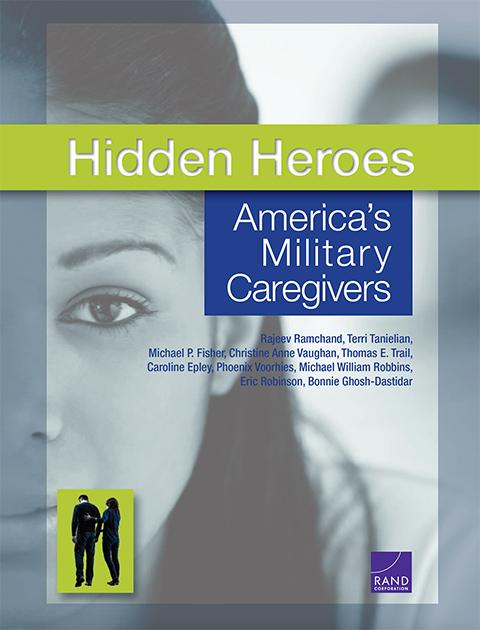
2014
Hidden Heroes: America's military caregivers
After a decade of war, supporting returning service members, veterans, and their families remains a national priority. Addressing the treatment and recovery needs of those who have been wounded, ill, or injured has been a special area of focus.
This most recent cohort of wounded, ill, and injured veterans—those who served after September 2001— benefited from improved battlefield medicine and rehabilitative services that allowed them to return to their homes and communities much more rapidly than cohorts before them. In their recovery and reintegration, many of these veterans are aided by the support and assistance of nonprofessional or informal caregivers: individuals who provide a broad range of care and assistance with activities of daily living, such as bathing, dressing, and eating, and who help them relearn basic skills, arrange and take them to medical appointments, manage their finances, and care for their children.
While much has been written about the role of caregiving for the elderly and chronically ill and for children with special needs, little is known about the population of those who care for military personnel and veterans, referred to as “military caregivers” in this report. An earlier RAND report, Military Caregivers: Cornerstones of Support for Our Nation’s Wounded, Ill, and Injured Veterans (Tanielian et al., 2013), summarized the scant literature on this group and outlined the need for continued research to understand the characteristics and needs of this population. This report summarizes the results of a two-part study designed to describe the magnitude of military caregiving in the United States today, as well as to identify gaps in the array of programs, policies, and initiatives designed to support military caregivers. The findings from this study will be of interest to policy and program officials within the agencies and organizations that sponsor and implement caregiver support programs.
This report was prepared as part of a research study funded by Caring for Military Families: The Elizabeth Dole Foundation. The research was conducted within RAND Health in coordination with the National Security Research Division, divisions of the RAND Corporation.